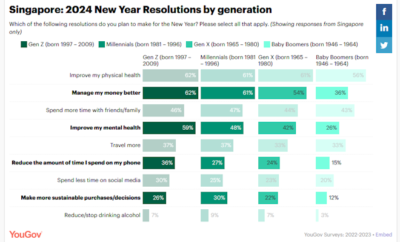
Health x Wellness
Treating Sugar Addiction Like Drug Abuse
With obesity rates on the rise worldwide and excess sugar consumption considered a direct contributor, the search has been on for treatments to reverse the trend.
Now a world-first study led by Queensland University of Technology (QUT) may have the answer, as neuroscientist Professor Selena Bartlett from the university’s Institute of Health and Biomedical Innovation expressed the possibility of using the very same drugs for treating nicotine addiction for sugar addiction in animals.
The study, which was published by international research journal PLOS ONE, coincides with another paper by the team – Prolonged Consumption of Sucrose in a Binge-Like Manner, Alters the Morphology of Medium Spiny Neurons in the Nucleus Accumbens Shell – being published in Frontiers in Behavioral Neuroscience. It shows that long chronic sugar intake can cause eating disorders and impact on behaviour.
The Prolonged Consumption of Sucrose in a Binge-Like Manner study also found that as well as an increased risk of weight gain, animals that maintain high sugar consumption and binge eating into adulthood may also face neurological and psychiatric consequences affecting mood and motivation.
“Excess sugar consumption has been proven to contribute directly to weight gain. It has also been shown to repeatedly elevate dopamine levels which control the brain’s reward and pleasure centres in a way that is similar to many drugs of abuse including tobacco, cocaine and morphine.” said Professor Bartlett who is based at the Translational Research Institute. She then added, “After long-term consumption, this leads to the opposite, a reduction in dopamine levels. This leads to higher consumption of sugar to get the same level of reward. And like other drugs of abuse, withdrawal from chronic sucrose exposure can result in an imbalance in dopamine levels and be as difficult as going ‘cold turkey’ from them.”
PhD researcher Masroor Shariff said the study also put artificial sweeteners under the spotlight – “Interestingly, our study also found that artificial sweeteners such as saccharin could produce effects similar to those we obtained with table sugar, highlighting the importance of reevaluating our relationship with sweetened food per se,” said Mr Shariff.









